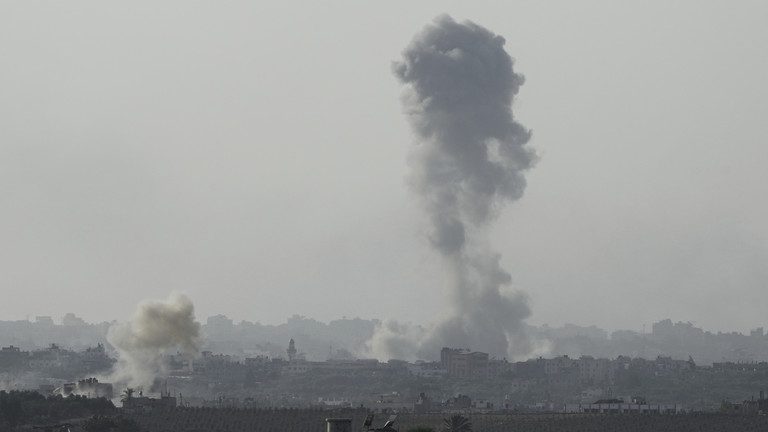World
UK official sacked for advocating for truce in Gaza

The staff member broke the cabinet’s “collective responsibility” rule, according to the PM’s office.
A ministerial aide to UK Prime Minister Rishi Sunak was fired for advocating for a “permanent” truce in Gaza. London has suggested only brief “pauses” to allow aid to reach the Palestinian enclave, falling short of calling for an end to the conflict.
Day after day, Conservative MP Paul Bristow wrote to Sunak urging a permanent cease-fire between Israel and Palestinian terrorists in Gaza. On Monday, Bristow was fired from his role as parliamentary private secretary (PPS) at the Department for Science.
A representative for 10 Downing Street stated, “Paul Bristow has been asked to leave his post in government following comments that were not consistent with the principles of collective responsibility.” The statement alluded to a regulation that requires public servants to publicly support all cabinet policy decisions.
Bristow contended that a “permanent ceasefire” would “save lives and allow for a continued column of humanitarian aid [to] reach the people who need it the most” in a two-page letter to the prime minister. But Sunak has strongly advocated for Israel’s military response against Hamas in the wake of the terrorist organization’s murderous October 7 attack. Sunak has also called for humanitarian “pauses” that are “distinct from a ceasefire” rather than an outright ceasefire.
Bristow continued to tell Sky News after being fired, saying that while he “completely understand[s] the PM’s decision,” he can “now talk openly about an issue so many of my constituents care deeply about.”
READ ALSO: Musk will let Starlink to reach Gaza
“I think I can accomplish this more effectively from the backbenches instead of working for the government,” he added.
London, along with 44 other member nations, abstained from the voting on the non-binding resolution that the UN General Assembly passed on Saturday, demanding an immediate ceasefire in Gaza. Only 14 nations—including the US and Israel—opposed the resolution, and it didn’t seem to have much of an impact because Israeli forces kept up their initial ground offensive against Gaza.
The idea of a ceasefire has been flatly rejected by Israeli Prime Minister Benjamin Netanyahu, who told reporters on Monday that “calls for a ceasefire are calls for Israel to surrender to Hamas.” The Israel Defence Forces (IDF) have progressively increased ground operations in the Palestinian enclave after weeks of intense bombardment; according to officials, the mission’s goal is to completely destroy Hamas.
Local officials report that thousands have been injured on both sides of the most recent violence, with some 1,400 Israelis and over 8,000 Palestinians having lost their lives. Though supplies has only been let into Gaza on a slow trickle in recent weeks, the UN has warned of a dire humanitarian scenario should the conflict continue.
